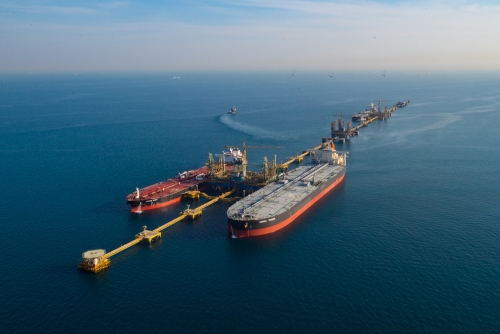Aramco announces first global LNG deal
Agencies | Riyadh
The Daily Tribune – www.newsofbahrain.com
Saudi Aramco on Thursday announced its first global investment in liquefied natural gas, part of a broader bid by the energy giant to expand beyond oil.
The company seen as the jewel of the Saudi economy said it would acquire a minority stake worth $500 million in MidOcean Energy, which is managed by the US investment firm EIG.
"We anticipate strong demand-led growth for LNG as the world continues on its energy transition journey, with gas being a vital fuel and feedstock in various industries," Aramco CEO Amin Nasser said in a statement.
"We believe that gas will be important in meeting the world's rising need for secure, accessible, and more sustainable energy."
He noted that the deal "marks Aramco's first international investment in LNG". Saudi Arabia, the world's biggest crude oil exporter, owns 90 percent of Aramco's shares and is depending on its revenue for Crown Prince Mohammed bin Salman's sweeping economic and social reform programme known as Vision 2030, which aims to shift the economy away from fossil fuels.
Aramco wants to become "a leading global LNG player", the firm's upstream president Nasir K. al-Naimi said in Thursday's statement, adding that it sees "significant opportunities in this market, which is positioned for structural, long-term growth".
MidOcean Energy "is currently in the process of acquiring interests in four Australian LNG projects, with a growth strategy to create a diversified global LNG business," the statement said. Aramco reported record profits totalling $161.1 billion last year, allowing the kingdom to notch up its first annual budget surplus in nearly a decade, though year-on-year performance fell during the first two quarters of 2023.
Aramco has pledged to achieve "operational net-zero" carbon emissions by 2050. That applies to emissions that are produced directly by Aramco's industrial sites, but not the CO2 produced when clients burn Saudi oil in their cars, power plants and furnaces.
Related Posts

